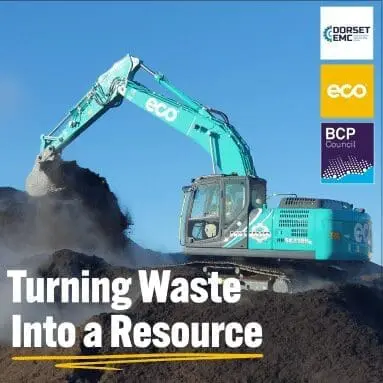They are an example not only of a local business that is supporting the circular economy, but also the type of organisation that can help and indeed is helping other local organisations on their own journey towards ‘net-zero’.
For example, local landscape garden contractors can take green waste to Eco for composting, but they can also buy soil improvers and mulches for use in local parks and gardens to protect and enhance the environment and support biodiversity – the natural carbon cycle in full effect.
Find out more about what Eco is doing to support the local circular economy here.
Eco also generates its own energy from waste wood which powers the buildings and some of the machinery on site. But they have plans to go further and support more local organisations to reduce carbon emissions and their reliance on fossil fuels.
The company is planning to take a small amount of local waste left over after recycling and turn it into heat which can be used by local businesses via a heat network. This will mean those businesses can move away from gas or oil systems, significantly reducing their carbon emissions.
What is the circular economy?
The circular economy is a model of production and consumption, which involves sharing, leasing, reusing, repairing, refurbishing and recycling existing materials and products as long as possible. Waste is minimised through better design and durability, and materials are kept within the economy – the closer to where they are used, the better.
Organisations like the Ellen MacArthur Foundation have more information on the circular economy including guidance on how you can help make change happen.
